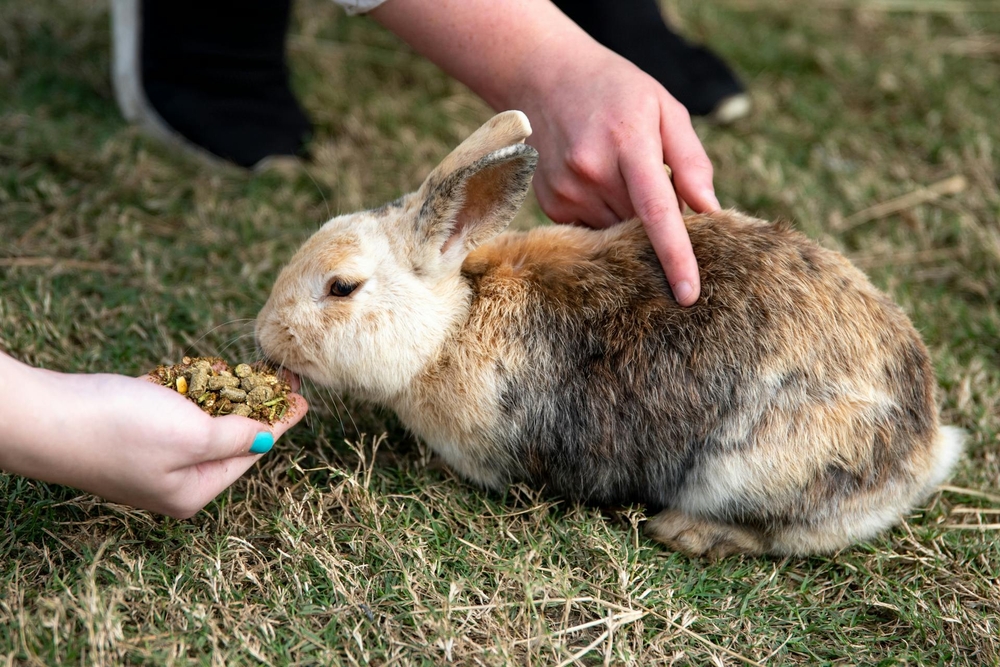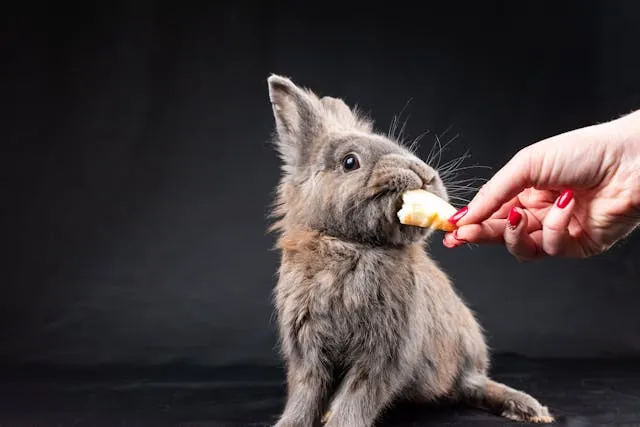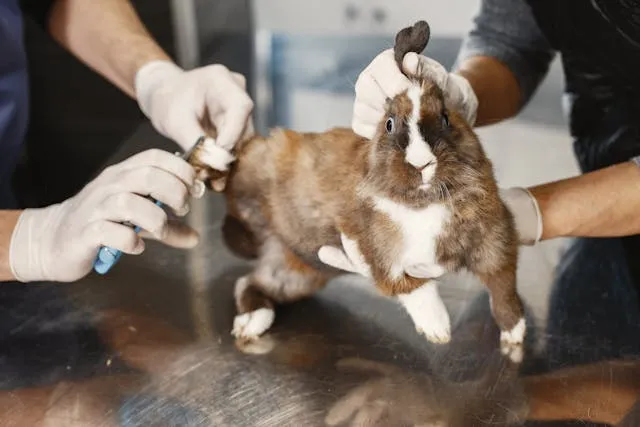Published
- 4 min read
The teeth of Rabbit: How to Properly Care for Them

The dental health of rabbits is one of the most important aspects to ensure their overall well-being. Unlike other animals, a rabbit’s teeth grow continuously throughout their life. Therefore, proper care of their teeth is essential to prevent serious health issues. If you have a rabbit as a pet, here’s how to take care of its teeth and keep it healthy.
1. Constant Tooth Growth
Rabbits have 28 teeth, and all of them grow continuously, about 2-3 mm per week. This constant growth is normal but requires natural wear to prevent the teeth from becoming too long. In the wild, rabbits wear down their teeth by chewing fibrous foods like grass, twigs, and bark.
At home, it’s crucial to replicate this process by providing an appropriate diet and other means that promote dental wear. If the teeth grow too long, they can cause malformations, wounds in the mouth, and difficulty eating, which can severely impact the rabbit’s health.
2. Diet for Proper Dental Wear
The key to maintaining healthy rabbit teeth is offering a diet rich in fiber. The primary food should be high-quality hay, as it helps naturally wear down their teeth as they chew. Hay should be available at all times since, in addition to promoting dental wear, it is essential for their digestion.
Besides hay, it’s important to complement their diet with:
Fresh vegetables: They provide nutrients and also help wear down the teeth. Some of the best options include dark leafy greens like spinach, cilantro, or kale.
Pellets made specifically for rabbits: In moderate amounts, as while they provide nutrients, they don’t help wear down the teeth as much as hay does.
Safe branches to chew on: Some fruit tree branches, like apple or pear, can offer additional material for chewing, further promoting natural dental wear.

Rabbit eating.
3. Detecting Dental Problems
Despite our best efforts, rabbits can develop dental problems. Common symptoms of these issues include:
Loss of appetite or difficulty chewing. Excessive drooling. Weight loss. Runny eyes, as overly long upper teeth can affect the tear duct. Infections or abscesses in the mouth or jaw.
If you notice any of these signs, it’s essential to consult a veterinarian specialized in exotic animals. Often, dental problems can be resolved with simple procedures, like filing down the teeth or correcting malocclusions.
4. Regular Vet Visits
Due to the continuous growth of their teeth, regular dental check-ups are a crucial part of rabbit care. A specialized veterinarian can detect problems early and make necessary adjustments to prevent more severe complications. In some cases, rabbits may need regular teeth filing if they cannot wear them down properly through their diet.

Rabbit at the veterinary check-up.
5. Toys and Stimulation for Dental Wear
In addition to a proper diet, it’s recommended to provide your rabbit with toys and safe objects to chew on. There are untreated wood toys specifically designed for rabbits that allow them to chew and help wear down their teeth while keeping them entertained. This not only helps keep their teeth in good condition but also prevents boredom and promotes mental well-being.
Conclusion
Taking care of your rabbit’s teeth is essential for its overall health. A diet rich in hay, fresh vegetables, and safe chewing objects is key to keeping their teeth at the proper length. It’s also important to be aware of any signs of potential dental issues and take your rabbit for regular vet check-ups. With the right care, you can ensure your rabbit enjoys a healthy, happy life free of dental problems.
Thank you for taking the time to read this article. We hope you found it helpful!
This article solely reflects the author’s opinion and should not be taken as professional advice.